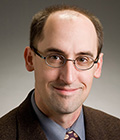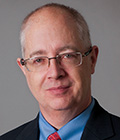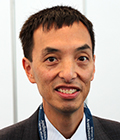The Weaponization of Medical Infrastructure
Monday, 3:30-5 p.m.
Mezzanine 14A-B
“The Weaponization of Medical Infrastructure” may be the most intriguing title of any session at the ANESTHESIOLOGY® 2015 annual meeting, and it promises to be an interesting look at how positive ideas could have negative effects.

Mark E. Nunnally, M.D.
“‘Weaponization’ is to alter something or adapt it to become an instrument of war. If you look at health care, you have a lot of competing priorities — competition for resources, for the limelight, for information and for control of the process,” said session moderator Mark E. Nunnally, M.D. “These things play on health care, just as they do in any other setting, but we are not accustomed to thinking about them that way.
“We will talk about things that ostensibly should be very positive — for example, protocols. We are going to provide examples of how these things could be adapted for ill-use, or how they may not achieve the stated, lofty objectives.”
The session will be presented from 3:30 to 5 p.m. today in Mezzanine 14A-B, and its speakers are a group worthy of the intriguing session title, said Dr. Nunnally, Professor of Anesthesia and Clinical Care at the University of Chicago.

Michael F. O’Connor, M.D.
Michael F. O’Connor, M.D., will present “The Social Construction of Medical Care.” He is a Professor of Anesthesia and Clinical Care at the University of Chicago, and his presentation is the underpinning of the argument about weaponization, Dr. Nunnally said.
“In health care, there are enormous social constructions. Perhaps the greatest example is the term ‘error,’” he said. “The more you dig into this concept of error, the more you realize it has a tremendous power of social attribution behind it. You can look no further than the vast, articulated theory of human error out there, which specifically states that frequently when something bad happens in medicine, it is not one thing, it is a compilation of events.
“However, in the post-hoc, 20-20 hindsight, Monday-morning-quarterback world, the attribution of a bad outcome comes to one thing, and it usually is an action by one person — usually a clinician under very difficult circumstances.”
Dr. O’Connor will talk about how society views adverse events through the lens of hindsight, and all the other factors that go into an adverse event.

Avery Tung, M.D.
Avery Tung, M.D., will present “Metrics: Measuring Success or Exerting Control?” He is a Professor of Anesthesia and Director of the Critical Care Services Burn Unit at the University of Chicago.
“He is able to see issues a few degrees differently from the rest of us. He sees features none of the rest of us see,” Dr. Nunnally said. “He will talk about quality improvement work he is doing that, at face value is a tremendous test, but in fact it reveals the senseless nature of some of the metrics we often look at.”
